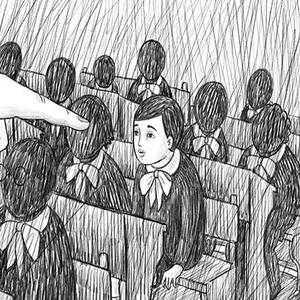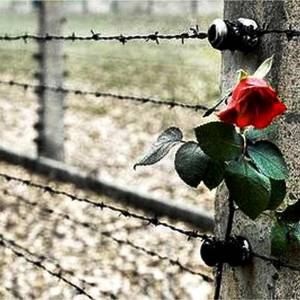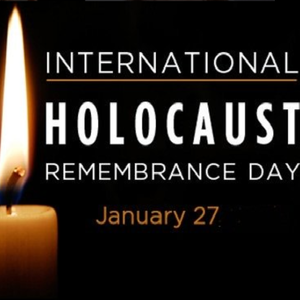According to Peter Stastny, director of the documentary "Redemption Blues," redemption “is reaching out for something that you cannot reach, but at least you make the effort,” while music, in particular playing with other Jewish musicians in New York, is that personal “place where you can move forward in a Jewish way even if you are not religious.” In his movie, presented yesterday at NYU Casa Italiana Zerilli Marimo’, Stastny explores what redemption means for the last survivors of the Holocaust. Often people who belong to the second generation, like him, feel the weight of that tragedy, the Shoah, but might spend their life with parents or relatives who never wanted to talk about what happened, like the director’s mother.
You chose: holocaust
-
-
Immediately following International Holocaust Remembrance Day 2019 premiere in the United States at the Embassy of Italy
-
Giornata della Memoria. Riflessioni nel corso della lettura dei nomi dei 9700 ebrei italiani deportati. Che il ricordo della Shoah apra gli occhi sul presente
-
Designated by the UN General Assembly in 2005, International Holocaust Remembrance Day Jan. 27 marks the 74th anniversary of the liberation from Nazi concentration camps. Events honoring the Shoah take place throughout Italy, from Palermo to Turin.
-
The Consulate General of Italy commemorates International Holocaust Remembrance Day, January 27th, by reading the names of Italian Jews who were deported from Italy on Monday 29th. In memory of the victims, the Consulate General of Italy, the Italian Cultural Institute, Centro Primo Levi, Casa Italiana Zerilli-Marimò at NYU, the Italian Academy at Columbia University, the Calandra Institute at CUNY, and La Scuola d’Italia Guglielmo Marconi will host multiple educational programs concerning the ideologies that lead to the Holocaust, such as antisemitism.
-
As Jews around the world lit Hanukkah menorahs in celebration, The National Museum of Italian Judaism and Shoah (MEIS) in Ferrara opened its doors for the first time. The museum creates a bridge between the past and present in a city which has played a central role in Jewish culture within the country.
-
EDITORS' NOTE: Mr. Jasha M. Levi, a Yugoslav Jewish antifascist in the 1930s and a fighter against dictatorships and genocides for all his life, fled the Nazis and his native Sarajevo for Italy. Here he—as a foreigner whose whereabouts remained unknown "to the Nazis and their Italian collaborators"—was spared "the cruel fate suffered by Italian Jews deported in cattle cars from Milan or burned in a crematorium in Trieste." Mr. Levi, who recounted his personal experience in a political memoir, "Requiem For A Country," asked i-Italy to publish the following short essay. In complying with his request, we believe that his balanced personal account not only, as he concludes, "does not diminish the memory of the eight thousand murdered Italian Jews," but may actually contribute to a better understanding of their tragedy—of which Italians, as a government and as a people, bear a collective historical responsibility, despite the good that some of them may have done in helping hundreds like Mr. Levi to survive.
-
The ignorance of our history has cast some of our “paesani” into the hinterlands of bigotry and prejudice, and thus led them to their coincidental and shameful consequences of non-acceptance of those who are not like us! I can arrive at no other conclusion as I offer up the three incidents below.
-
On the occasion of the Remembrance Day, i-Italy publishes again this interview released on 27th January 2009. An encounter with journalist Andrea Fiano, member of the Board of Directors of the Primo Levi Center (NYC). He is the son of Nedo Fiano, an Auschwitz survivor, and the father of Talia, an Italian American teenager
-
The Primo Levi Center organized an afternoon of commemoration and discussion about the Italian experience during the Holocaust; recognizing those who partook in the Antifascist movement and other Resistance movements. The unprecedented international video-call discussion between Italian intellectuals, historians, and journalists in New York and across the Atlantic was followed by the screening of "The Rosselli Case," a film directed by Stella Savino







































